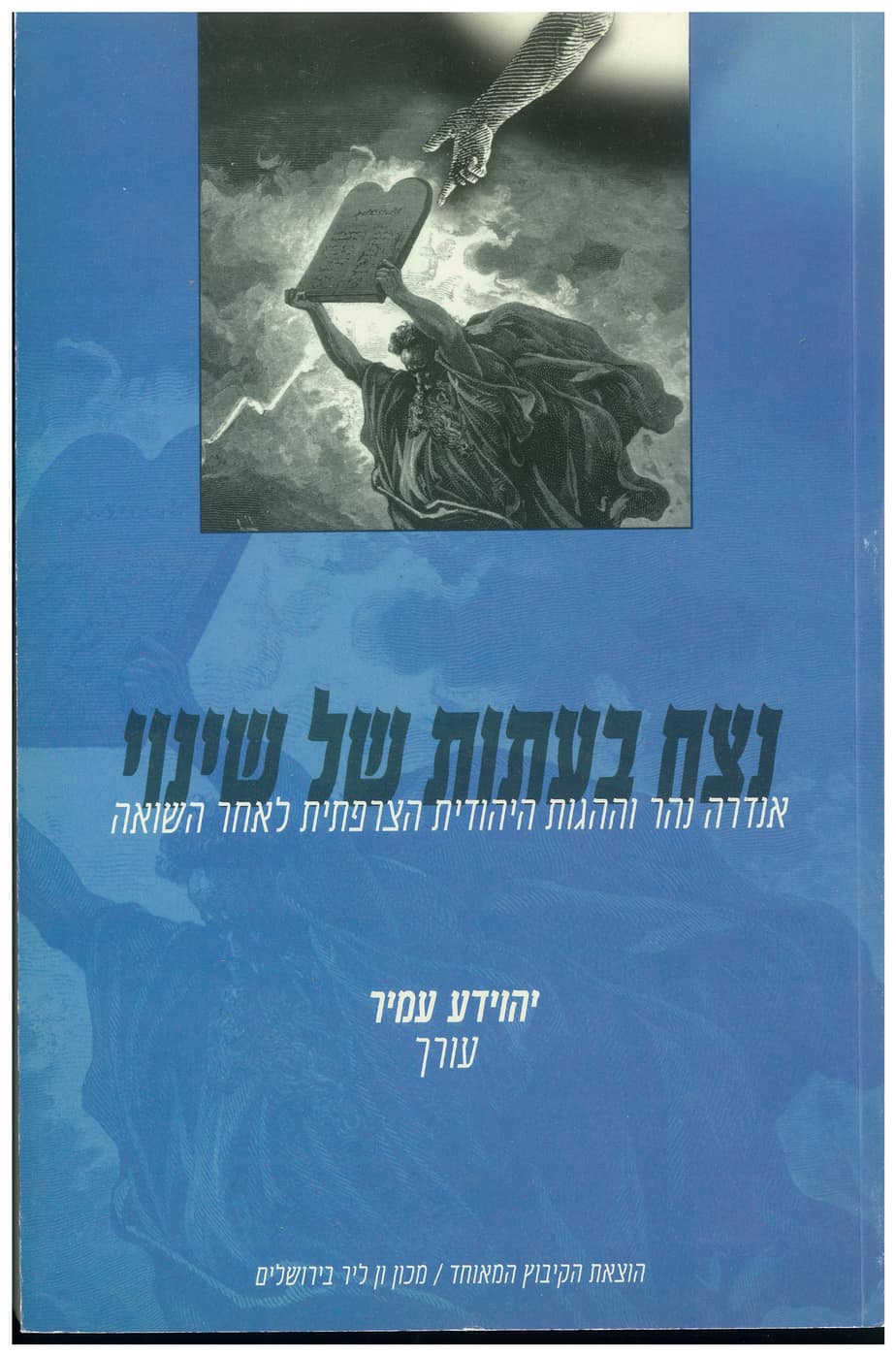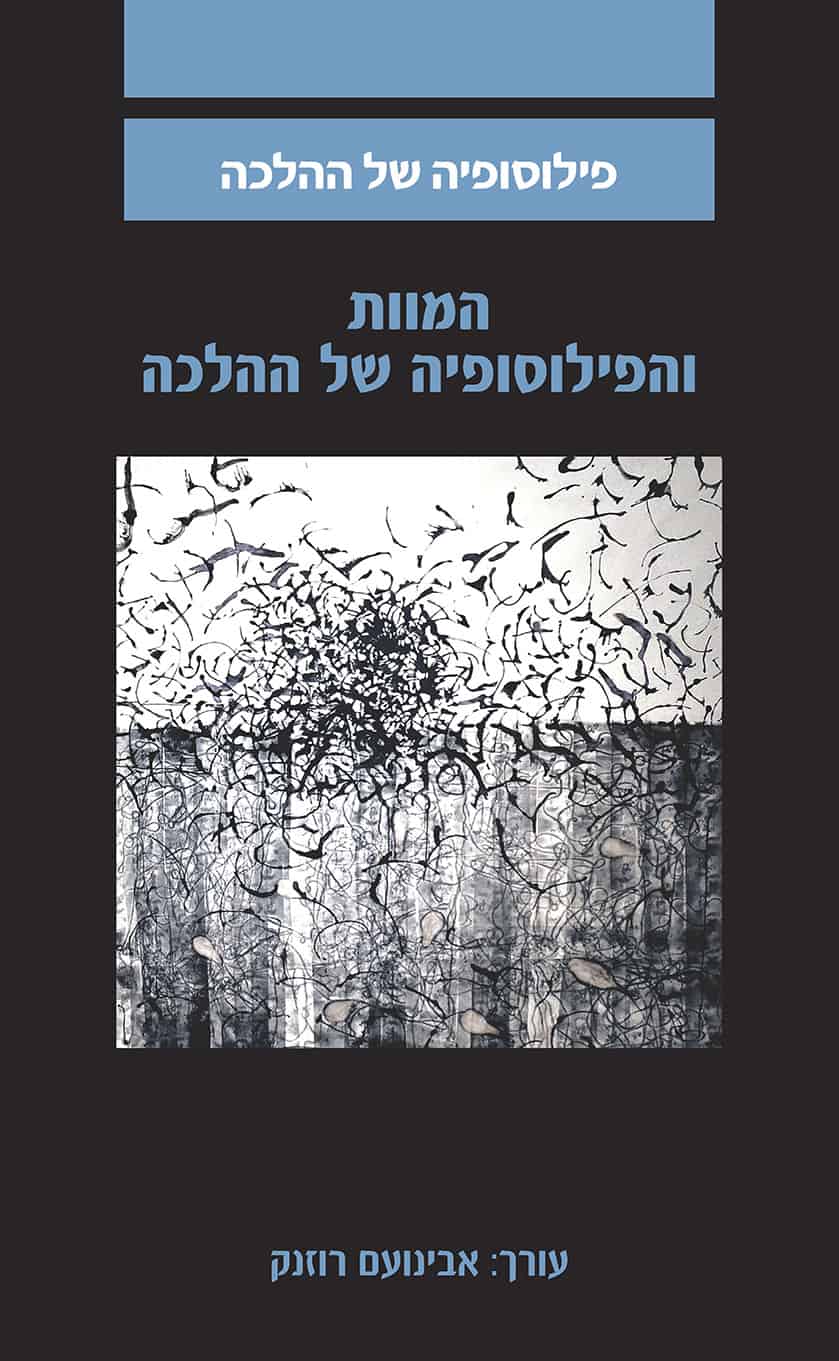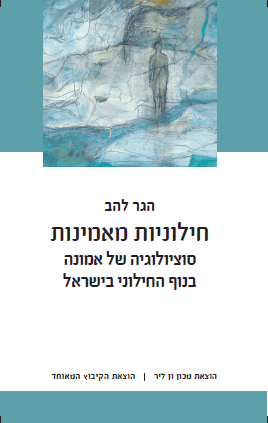Andre Neher and Jewish Thought in Post-Holocaust France
| Edited by | Yehoyada Amir |
| Publisher | Van Leer Institute Press and Hakibbutz Hameuchad |
| Language | Hebrew |
| Year of Publication | 2005 |
| Series | Jewish culture and identity Publications, Theory in Context Series |
Andre Neher and Jewish Thought in Post-Holocaust France examines and critiques the work of the philosopher and educator who shaped the spiritual character of France’s large Jewish community in the generation after the Holocaust. Andre Neher, the colleague of Emmanuel Levinas and Leon Ashkenazi, moved to Jerusalem and lived there for many years, but his philosophy has remained largely unknown to the Hebrew-readers. We hope that the papers in this book, by the finest thinkers and scholars in the discipline of modern Jewish thought, will fill that void.
A well-known midrash describes the moment before the giving of the Torah: God grasps the tablets of the covenant on one side and Moses grasps them on the other. They do not touch each other; they are separated by a space. Andre Neher questions the meaning of this space between the human and the divine, between philosophy and religion. Can we say nothing about the gap between those worlds except that it is not bridgeable?
Neher’s philosophical belief is based on the determination that it is indeed possible to bridge this gap and to be simultaneously a rational person and a person of faith: “From the tension, the opposition, the polarization, from what our eyes see as absurd, even the Holocaust—the Jewish challenge of Jerusalem and the challenge of the bridge awaits and calls to you: to join, to cooperate, to unite” (Andre Neher, “Can two walk together, unless they be agreed?-
”הילכו שנים יחדו בלתי אם נועדו”)




